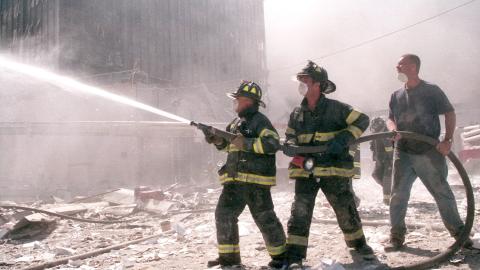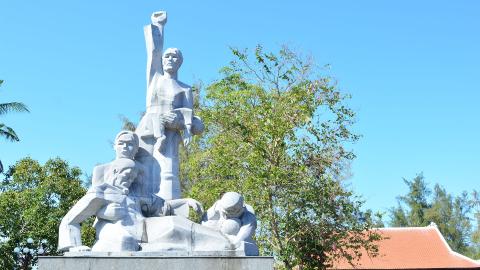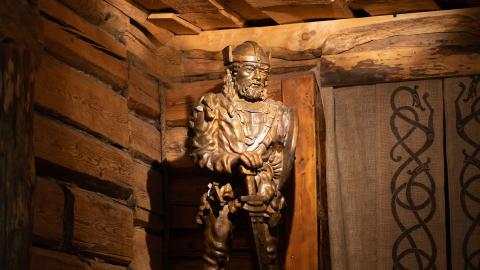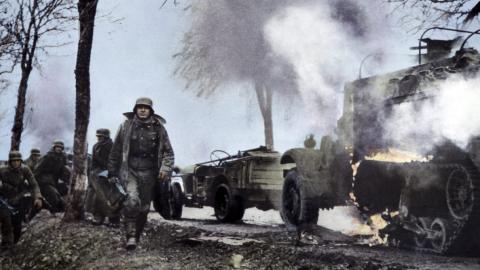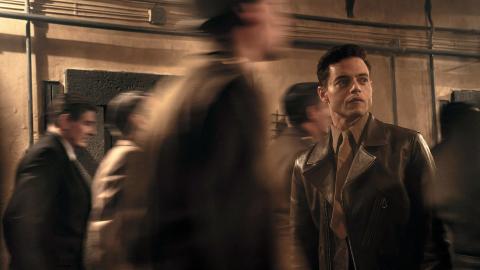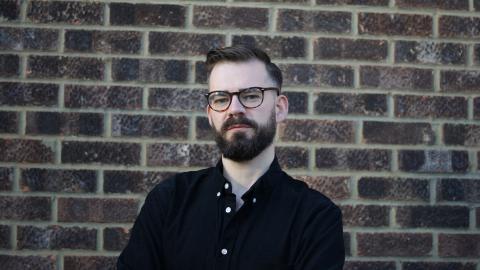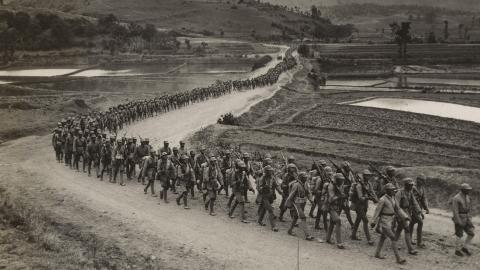The Man Awarded Two Victoria Crosses
There’s no feat in military service more difficult that getting a Victoria Cross. To a casual onlooker, it may look like just another dangling medal, but it’s a symbol of almost unimaginable bravery and daring in the face of the enemy. Getting just one means you’ve demonstrated the kind of heroism that’s rare outside a Hollywood movie. Getting two? That’s almost superhuman.
Take a bow, Charles Hazlitt Upham. The World War Two hero was, and remains, the only combatant to receive two Victoria Crosses. (The only other two people to have been awarded twice were medics rather than soldiers.)
Hailing from New Zealand, Upham’s strong character and resolve was apparent from an early age. According to his biographer, Upham was nicknamed “Pug” at school and “his face was cast in an aggressive line for a boy for his age, and he was already displaying a spirit of mild belligerence towards things he did not believe in.” It was this “mild belligerence” that would blossom into righteous fury when he saw the rise of Nazism on the other side of the world.
Described by one friend as an “an experienced, educated, well-bred rough diamond”, Upham wasted no time enlisting in the battle against the Fascist tide in Europe, and in 1941 he shipped out to meet his destiny. The skirmishes which earnt his first Victoria Cross unfolded in the killing zones of Crete, where – as the official VC citation put it – he “performed a series of remarkable exploits, showing outstanding leadership, tactical skill and utter indifference to danger.”
Leading a platoon through machine gun fire, Upham single-handedly advanced to take on enemy soldiers with his pistol and grenades, slaying German paratroopers and knocking out an anti-aircraft gun. After these skirmishes, Upham helped carry a wounded comrade to safety while bullets whizzed past them, then ran straight back into enemy territory to lead other comrades to salvation – killing two enemy combatants in the process. The most breathtaking display of ingenuity and bravery came when Upham – who had an arm in a sling after being hit by shrapnel – embarked on a mission to pass on crucial information to a platoon. Fired on by two Germans, Upham slumped by a tree, pretending to be dead. In fact, he nestled his rifle amid the branches, waited until the Germans came closer, and shot them both.
During all of his escapades in Crete, Upham also happened to suffer from serious dysentery and looked like a skeleton before it was all over. Awarded a Victoria Cross, Upham wasn’t ready to rest on his laurels, and the very next year he managed to somehow outdo himself during the First Battle of El Alamein.
He was wounded twice – first when entering an area being swept by the relentless roar of machine guns, and then when taking on an entire truck crammed with enemy soldiers, blowing it up with grenades. Further skirmishes saw Upham demonstrate his almost supernatural fearlessness in the face of fire, single-handedly destroying at least one tank and numerous armaments despite being shot in the elbow. He was eventually taken prisoner after his legs gave way and he was practically unable to move – one of only a handful of survivors in his company.
When his exploits had him recommended for a second Victoria Cross, King George VI was sceptical. The VC was such a rare reward that it seemed incredible that one man could warrant it twice in quick succession. “Does he deserve it?” the king asked a senior military leader. “In my respectful opinion, sir,” the Major-General replied, “Upham won the VC several times over.”
Upham’s adventures didn’t end there. As a POW, he proved himself a serious headache for his captors – he once tried to escape by leaping from a track and running off with a broken ankle. During another escape attempt, he ran straight into barbed wire, then calmly lay in the nest of barbs and lit a cigarette while a German confronted him. He was eventually sent to Colditz for his efforts.
Despite all these achievements, and his unprecedented honours, Upham was almost aggressively modest about his career. When his local community in New Zealand raised money to buy him a farm, he gave the cash away to a scholarship for the kids of ex-soldiers. And, tired of forever being praised for his bravery, he summed up his feelings very bluntly: “I don’t want to be treated differently from any other bastard.”

